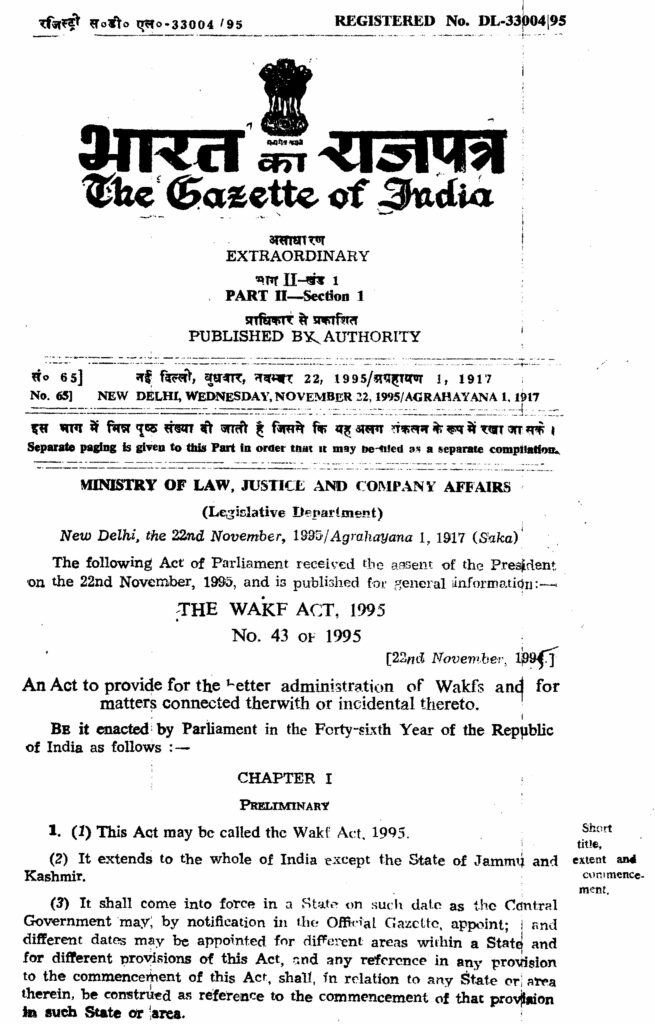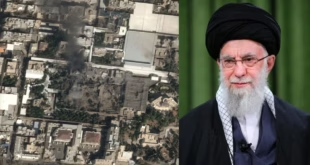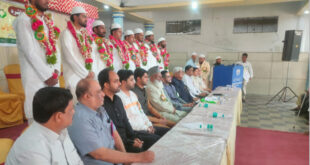By: J.S. Ifthekhar
The Wakf (Amendment) Bill, 2024 has become a major challenge for the Modi government, sparking widespread controversy. The proposed amendments have not only provoked opposition parties but also galvanized Muslim bodies, who view the bill as an overreach into the religious and community affairs of Muslims. This reaction has highlighted the complexities of governance in a diverse, multi-religious society, particularly in a coalition government setting where consensus is often hard to achieve.
Muslim organizations argue that the bill is part of a broader pattern of government policies—such as the triple talaq legislation and discussions around the Uniform Civil Code—that seem to target Muslim practices. Many feel these policies are undermining their religious autonomy and fueling resentment within the community. The proposed amendments to the Wakf Act are seen as the latest in this series, deepening the distrust between the government and Muslim groups. Critics argue that the government is intruding into religious matters and taking control of properties dedicated for pious and charitable purposes under Islamic law.
The confusion surrounding wakf itself further complicates the debate. Wakf refers to the permanent dedication of property, either movable or immovable, by an individual for religious or charitable purposes under Muslim law. However, there is a sense of mystery around how these properties and the Wakf Boards function. Despite being governed by laws like the Wakf Act of 1995, the functioning of Wakf Boards is often opaque, with reports of mismanagement and misuse of properties being common.

The government’s move to amend the Wakf Act has ignited an unprecedented response from the Muslim community. Across the country, Muslims are signing petitions and raising their voices in opposition to the controversial Wakf (Amendment) Bill, 2024. Notices against the Bill are being put up in mosques, reflecting the widespread concern that the proposed changes are an intrusion into the religious affairs of Muslims.
However, amidst this strong opposition, there is also a growing recognition within the community that Wakf Boards have fallen short of the trust placed in them. Over the years, several instances of mismanagement, illegal sales, and alienation of valuable wakf lands have come to light. Wakf properties, which are meant to be endowments dedicated to God for the socio-economic upliftment of the community, have often been leased to vested interests, eroding the very purpose they were intended to serve.
The inefficiencies within Wakf Boards are no secret. There has been little effort to strengthen the infrastructure of these Boards or to recruit sufficient and capable staff to manage the vast and complex assets under their control. Despite their importance, Wakf Boards across India continue to operate with a lack of transparency and accountability.
At the same time, both Central and State governments have been cautious in their approach, avoiding direct involvement in wakf affairs out of fear that any intervention could be seen as meddling in Muslim religious matters. This reluctance has allowed issues within Wakf Boards to persist unchecked.
While wakf properties are religious endowments, they are governed by the Wakf Act of 1954, which establishes the legal framework for their management. The current debate over the amendment reflects the difficult balance between religious autonomy and the need for greater control in the management of public assets.
Unlike the Hindu Endowment Department, Wakf Boards are not vested with judicial powers to take immediate and decisive action against encroachments, illegal sales, or mismanagement of properties. This lack of judicial authority has severely hampered the Boards’ ability to protect wakf assets and address violations effectively. Without the power to independently initiate legal proceedings or evict encroachers swiftly, Wakf Boards often find themselves entangled in bureaucratic red tape, leading to delays and the unchecked exploitation of valuable properties.
Additionally, another major shortcoming is the absence of senior-level bureaucratic leadership, such as an IAS officer, at the helm of Wakf Boards. The presence of an IAS officer, known for their administrative experience and accountability, could significantly improve the efficiency and transparency of wakf administration. In contrast, Wakf Boards often suffer from poor management, inadequate staff, and lack of professional supervision, contributing to a culture of mismanagement and corruption.
While the intent of wakf is to serve religious, charitable, and socio-economic purposes, its potential remains largely untapped due to administrative inefficiencies. The lack of swift action in cases of encroachment and the improper leasing or sale of wakf lands has only deepened the frustration within the Muslim community.
Reforming the structure of Wakf Boards by introducing judicial powers and appointing competent, high-ranking officers could be crucial steps toward ensuring that wakf properties are managed responsibly. This would also help restore the trust of the community and fulfill the original purpose of wakf as a tool for social welfare.
The Wakf Act, introduced in 1954 by the Jawaharlal Nehru government, has undergone several amendments over the years—in 1964, 1984, 1995, and most recently in 2013. These changes were intended to address concerns from scholars, religious leaders, and the broader Muslim community, with the overarching goal of ensuring the effective and transparent management of wakf properties. Each amendment sought to improve governance, streamline administration, and protect the vast assets dedicated for religious and charitable purposes under Islamic law. However, despite these noble intentions, the ground reality has often fallen short. As a result the guardians have turned predators.
The 44 odd amendments proposed have sparked significant controversy, particularly the proposal to include non-Muslim members in the Central Wakf Council and State Wakf Boards. This move has been met with strong opposition from several Muslim leaders who feel it would undermine the religious sanctity and autonomy of the Wakf Boards.
As the debate continues, the Modi government finds itself in a delicate position, balancing the need for transparency in wakf administration with the growing demands from the Muslim community to respect religious autonomy. The outcome of this legislative battle could have lasting political and social implications.
(The author is a senior journalist)
 Gawah (The Witness) – Hyderabad India Fearless By Birth, Pristine by Choice – First National Urdu Weekly From South India – Latest News, Breaking News, Special Stories, Interviews, Islamic, World, India, National News
Gawah (The Witness) – Hyderabad India Fearless By Birth, Pristine by Choice – First National Urdu Weekly From South India – Latest News, Breaking News, Special Stories, Interviews, Islamic, World, India, National News






